Share
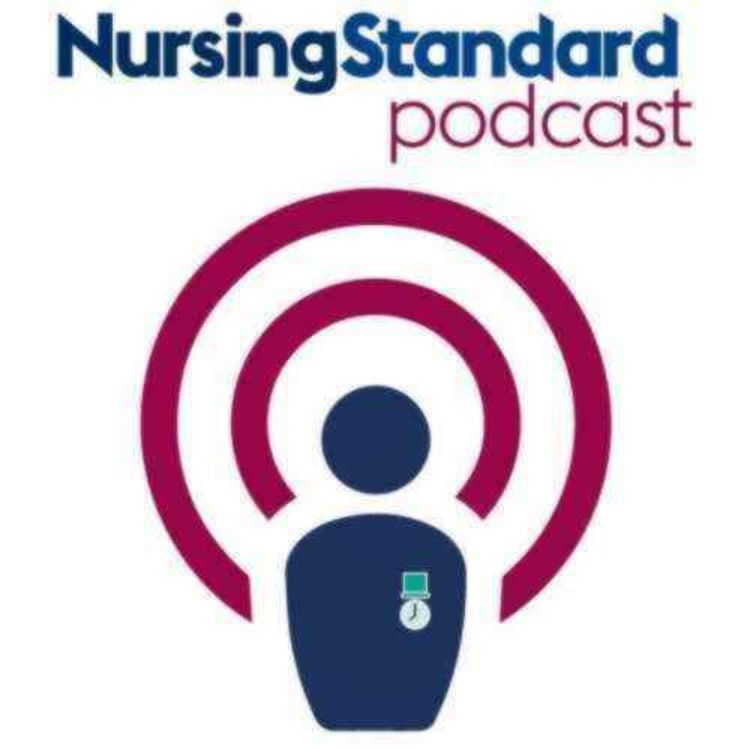
Nursing Standard Podcast
Could nurses hold the key to missing persons cold cases?
Nurses could hold the key to solving the mystery of a 34-year-old cold case, which could potentially help reunite an unidentified man with his name and provide solace to his loved ones.
In spring 1990, the skeletal remains of a man were found in Deepdene Woods in Surrey by a dog walker and his identity has never been established.
However, due to clues found with ‘Deepdene man’ as he is known, investigators believe that he could have been a patient at Netherne Hospital and are appealing for nurses who may have worked there to come forward to help with their investigations.
The mystery is one of a number of cases of missing or unidentified people which missing person charity Locate International is attempting to resolve. The charity takes on cold cases that otherwise would not receive attention, with teams of volunteer sleuths meeting to identify unknown people and give them back their names.
On this episode of the Nursing Standard podcast, two of the charity’s volunteers – Roland Hughes and Jess Halsey – discuss how nurses may be able to play a part in solving this case and other mysteries.
‘St Helier woman’: depiction of an unidentified woman who died in St Helier Hospital in 2006 Picture: Hew Morrison
Mr Hughes and Ms Halsey also appeal for help in a case of an unidentified woman who died soon after being found outside St Helier Hospital in south London in 2006.
They tell Nursing Standard features editor and podcast host Alistair Mason why nurses could be particularly useful in resolving these cases.
‘We are aware that people who work in nursing and the medical professions will have dealt with these cases in the first place. People within these professions have a knowledge that is unique and they can really help us,’ says Mr Hughes.
They are particularly keen on hearing from people who might have worked at these hospitals at the time of the .
For more episodes of the Nursing Standard podcast, visit rcni.com/podcast
More episodes
View all episodes
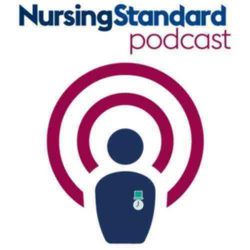
9. Nursing at Christmas: the highs and lows of shifts
31:31||Season 13, Ep. 9For many nurses working at Christmas is unavoidable given the demands of 24-hour care, but it may still be possible to share some festive cheer with colleagues and patients. In this episode of the Nursing Standard podcast two nurses from different clinical backgrounds discuss their experiences of working over Christmas and offer tips on and how to make the most of itFor more episodes of the Nursing Standard podcast, visit rcni.com/podcast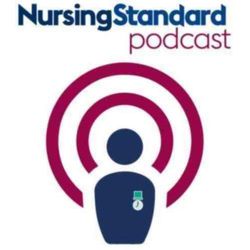
8. How to be a nurse leader – even if it doesn’t come naturally
33:57||Season 13, Ep. 8All nurses can be leaders, no matter your band or level of seniority.But everyone’s leadership journey will look different, depending on your personality, preferences and cultural influences – there is no ‘one size fits all’ when it comes to leadership.Nichole McIntosh has worked as a nurse in the NHS for 24 years and held many leadership roles. But as an introvert, she says leadership is not something that comes naturally to her.In the latest episode of the Nursing Standard podcast, Ms McIntosh describes her leadership journey - from nursing student to her current role as NHS England head of nursing and midwifery in workforce, training and education for the London region.She explains how to embrace the leadership challenge even if you are reluctant, the importance of emotional intelligence and reflection in leadership, and why it is so important to always bring your authentic self to the table.In a seminar delivered at the RCNi Nursing Careers and Jobs Fair in London in September 2024, Ms McIntosh described how leadership is about respecting, empowering and enabling your team, which is why she always sticks to her values of kindness, compassion and empathy.Your leadership journey is also about taking risks, she says, and sometimes taking a step sideways or down can be beneficial to your career. Having the courage to step outside of your comfort zone can also inspire others.This podcast is from a seminar at the RCNi Nursing Careers and Jobs Fair in London held on 6 September 2024For more episodes of the Nursing Standard podcast, visit rcni.com/podcast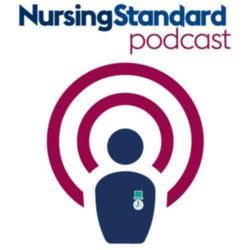
6. Why can’t newly qualified nurses find jobs in the NHS?
35:05||Season 13, Ep. 6As nurses joining the register for the first time report having to take jobs in shops, cafes and pubs as they struggle to find jobs in the NHS, we talk to one new nurse about her experience.Although the NHS in England has more than 30,000 vacancies, many newly qualified nurses are facing unemployment and considering leaving the profession before their careers have properly started.York University nursing graduate Amy Mann was shortlisted for the RCN’s Nursing Student award in 2023 after founding Kathleen’s legacy, which provides comfort to patients and their families at the end of life.Now qualified and newly registered, Ms Mann has applied for 35 jobs in the NHS without success and with bills to pay, she has moved back home to Nottingham to take a job in a coffee shop.In the latest episode of the Nursing Standard podcast, Ms Mann shares her experiences trying to get a full-time job and discusses the emotional and professional impact the process has had on her, as she attempts to kickstart her nursing career.Joining her is nurse Charlotte Collings, recruitment and retention lead at the Princess Alexandra Hospital NHS Trust in Harlow.She discusses the possible causes of the problems, such as recruitment freezes and NHS finances, and shares her advice for Ms Mann and other new nurses facing the same issues across the country.Ms Collings also warns that by denying these skilled professionals jobs now, they could leave the country for work or even leave nursing altogether for good. ‘If you don’t take up the skills that are in front of you, people are going leave to work for other organisations, or they might leave the country entirely,’ she tells the podcast.‘We have had a lot of inquiries about overseas vacancies in places like Australia and Canada, because they are thinking if the UK don’t want me then I’ll go somewhere else. I think it’s an absolute shame.’Despite the hardship Amy Mann said that she is more motivated than ever to find a role and she’s sure that the right job is waiting for her ‘rain or shine.’For more episodes of the Nursing Standard podcast, visit rcni.com/podcast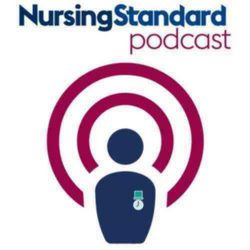
5. Is it a hypo or a hot flush? Common symptoms of diabetes and menopause
22:09||Season 13, Ep. 5ADC 100501 (V1.0) 10/2024The views expressed are not intended to be used for medical diagnosis or treatment or as a substitute for professional medical advice. Patients should consult their physician or qualified health provider regarding their condition and appropriate medical treatment. Individual symptoms, situations and circumstances may vary.Is it a hypo or a hot flush? This is a question women with diabetes who are also experiencing menopause symptoms may ask themselves.The overlapping symptoms of diabetes and perimenopause and menopause are the subject of this episode, sponsored by global health company Abbott.The episode also examines the impact of diabetes on fertility and pregnancy, and offers guidance for nurses treating women with diabetes at different life stages.It features Dawn Adams, a midwife and menopause advocate from Belfast who has personal experience of type 1 diabetes and menopause. She is joined by Jess Jacques, who has lived with type 2 diabetes for more than ten years and is in the process of trying to conceive.The episode is sponsored by Abbott, a global healthcare leader that helps people live more fully at all stages of life. Focused on making breakthrough technology accessible and approachable for all, Abbott’s sensing technology is revolutionising how people monitor glucose and providing healthcare professionals with more data for better informed treatment decisions.· For more episodes of the Nursing Standard podcast, visit rcni.com/podcast
4. Coping with shifts: how nurses can prioritise their well-being
42:57||Season 13, Ep. 4In this episode of the Nursing Standard podcast two experienced nurses share their experiences of the challenges and benefits of working shifts, including how irregular hours can lead to social isolation, poor diet and disrupted sleep. They emphasise the importance of good quality rest and the need for nurses to prioritise self-care.· For more episodes of the Nursing Standard podcast, visit rcni.com/podcast
3. Pressure ulcers: tips for avoiding preventable harm
20:29||Season 13, Ep. 3Pressure ulcers are one of the most common preventable ways by which patients are harmed during their care.They can be serious and even life-threatening, causing pain and distress to people of all ages and across all care settings.Nurses have an essential role in preventing pressure ulcers, and often the first action in prevention is to complete a pressure ulcer risk assessment. This can provide a foundation for care planning. Risk assessment and using risk assessment tools are the focus of the latest episode of the Nursing Standard podcast. This episode features tissue viability nurse consultant Julie Tyrer, who has written a continuing professional development (CPD) article headlined Implementing the PURPOSE T pressure ulcer risk assessment tool into clinical practice for RCNi specialist journal Nursing Older People. Talking with RCNi continuing professional development editor Nick Lipley, Ms Tyrer discusses her work at Liverpool Heart and Chest Hospital NHS Foundation Trust and the latest pressure ulcer recommendations from the National Wound Care Strategy Programme, in particular the advantages and challenges associated with PURPOSE T.
2. Sepsis: how to spot atypical symptoms
41:02||Season 13, Ep. 2When sepsis nurse Yvonne Young’s son experienced pain in his knee and groin, she told herself there must be another explanation. It couldn’t be sepsis, could it?The signs were atypical. But Yvonne, assistant director of nursing for sepsis at UL Hospitals Group in Ireland, listened to the nagging doubt in her head and took her son to the emergency department.Her instincts were correct – her son ended up staying in hospital for ten days as he recovered from sepsis, and remained on antimicrobials for three months.On the latest Nursing Standard podcast episode, Yvonne and Oxford University Hospitals NHS Foundation Trust lead sepsis nurse Clare Hird discuss atypical sepsis presentations with Nursing Standard features editor Alistair Mason.They talk about how sepsis can present in vulnerable patient groups, and some cohorts in which it can easily be missed, including older patients and individuals with learning disabilities.And Yvonne shares what she learned from the ‘terrifying’ experience of having her 10-year-old son hospitalised with the condition.For more episodes of the Nursing Standard podcast, visit rcni.com/podcast
1. Nurses’ uniforms: what they say about nursing identity
36:15||Season 13, Ep. 1Whatever gripes nurses may have about modern uniforms, they reflect that they at least have it better than previous generations. Nurses at trusts which take on the new national uniform in England will be wearing a smart scrub or dress in a lightweight fabric. In this Nursing Standard podcast we get an overview of the history of the nursing uniform from the 1860s to the modern day and how it is linked to the nursing identity.For more episodes of the Nursing Standard podcast, visit rcni.com/podcast